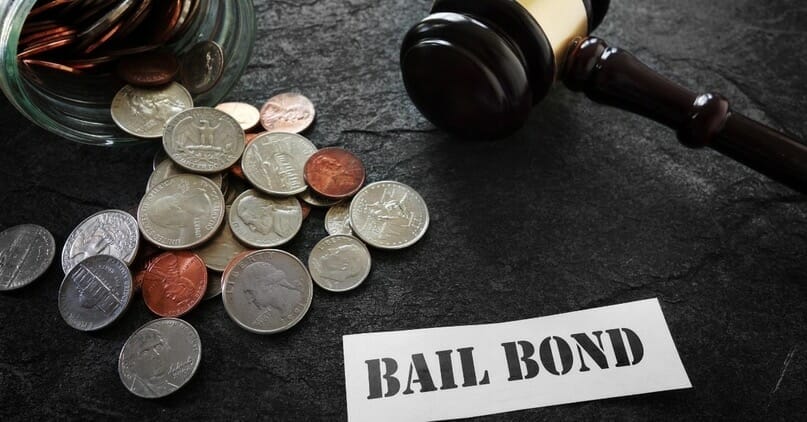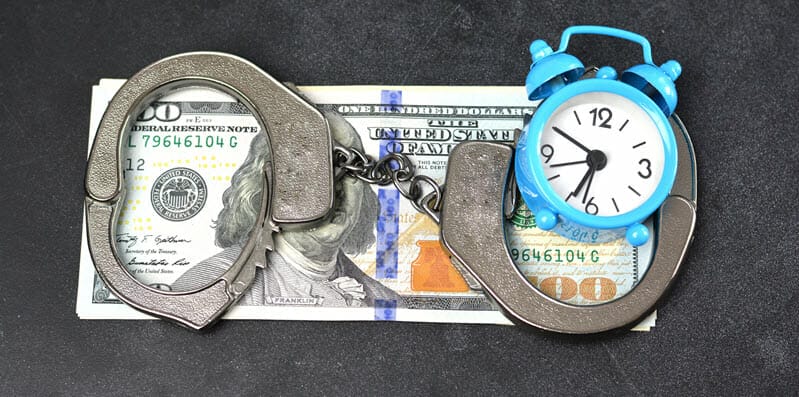
- Felonies
- *
- Misdemeanors
- *
- Drug/Narcotics Violations
- *
- Sex Offenses
- *
- Gun / Weapons Violations
- *
- Robbery
- *
- Burglary
- *
- Assault
- *
- Theft
- *
- White Collar Crimes
- *
- Domestic Assualt
- *
- Property Damage
- *
What Is a Bail Bond?
We have all heard of a defendant being released from jail on bail, but what does this mean? We are here to dispel the myths and answer the question of what is a bail bond. The answer to the question of what is a bail bond is when a defendant is charged with a crime and wants to get out of jail until their court date, the defendant can pay the court or jail by posting a bail bond. Until bail is posted, they will remain in jail.
What Are the Differences Between Bail and Bail Bonds?
Getting arrested for a crime is highly stressful, and no one wants to sit in a jail cell until their court date. It is important to understand what bail bonds are so you can prepare should you need to get out of jail.
Understanding the Bail System
When defendants face criminal charges, they go before the judge for a bail hearing. The bail amount is up to the discretion of the judge. The judge may release people on their own recognizance, deny it altogether, or set the amount based on criminal cases and flight risk potential.
For instance, a misdemeanor crime would likely lead to a low bail amount. A felony charge, such as murder, will have a much higher amount, or the judge may deny it altogether.
If a defendant pays their bail and attends all trial dates while complying with the full terms of their release, the money goes back to them. Should they fail to comply with the terms or miss a court appearance, they forfeit this money.
Understanding Bail Bonds
Because bail is sometimes very high, many defendants cannot afford it. When a defendant cannot afford their full bail amount, they can seek a bail bond from a bail agent. There are two main types of bail bonds: a criminal bail bond and a civil bail bond.
A criminal bail bond is a surety bond provided by bail bondsmen or a surety company. Surety bonds allow the defendant to get out of jail while ensuring they will appear for court dates. It also guarantees any penalties or fines the defendant must pay.
A civil bail bond is a type of surety bond used in civil cases and guarantees the payment of debt and any interest costs or fees charged against a defendant.
How Do Bail Bonds Work?
If a defendant cannot pay the set bail amount, they can seek a bail bond. In most cases, defendants choose to hire a bondsman to post bail. In exchange, you agree to pay a small fee, which is a percentage of the bail.
It is important to note that this amount is not refunded to you, even if you show up for all court appearances and comply fully with the terms of your release. This percentage is considered payment for services rendered and the risk of posting it for a person.
It works by requiring you to put up collateral for substantial bail amounts. If the defendant fails to appear in court, the bail bondsman will use the collateral as payment for the bail. If the defendant appears in court and meets all release and bond agreement terms, surety companies will return their collateral.
What Is a Bail Bondsman?
A bail bondsman, bail bond agent, or bail bond company posts bail for defendants. In exchange for these services, these for-profit agencies and agents get paid through fees.
Bail bondsmen can also profit by suing for any collateral used. This legal profession provides a service for those who cannot afford to pay their bail amounts and want to be released and await their court trial.
Allow Bail Bond Agents Like Us to Help You Navigate the Legal Landscape
In these trying times, we understand the stress placed on your shoulders, especially if a court case is involved. Whether you or a loved one need help, we are here to help you navigate the criminal justice system. Call us now so we can answer your questions and help you better understand your options.











